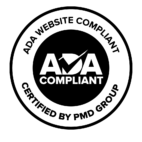The start of a new year creates a “clean slate” mentality and goal-oriented mindset. Oftentimes, these goals focus on physical aspects such as better eating habits, cooking more at home, exercising, joining a gym, or curbing alcohol and tobacco products. While these goals are important to your physical health and well-being, it’s also important to examine your financial health. By looking at where you stand financially, you can better assess how “fit” you are in this resolution category. Here are 5 ways to become financially fit in the new year:
Check Your Credit Report
Much like a yearly health check-up at your physician’s office, routinely checking your credit report is also important for knowing your financial standing. In obtaining your credit report, you can see areas for improvement or even matters that need to be addressed immediately.
Checking your credit report can help you identify potential errors or mistakes on your report, and in some cases, reduce the chance of fraud happening with your information. Checking your report can help you better prepare ways to improve your score which greatly affects rates, terms, and savings that come with applying for a loan or credit card. By improving your credit score, you can potentially save thousands over the course a loan.
You can request a free copy of your credit report once a year from each of three major credit reporting agencies – Equifax®, Experian®, and TransUnion® – at AnnualCreditReport.com.
Name (or Update) Your Beneficiaries
While naming beneficiaries is not mandatory, you should aim to name beneficiaries this year to ensure your money goes where you want it to. This type of crucial organization of your finances ensures that your life insurance or assets benefit the people that you care about. By not designating a beneficiary, it may be unclear where the funds are going and cause a delay in benefit payment.
Similarly, if you have named a beneficiary, it’s important to review the information you have on file and keep it up-to-date. If any major changes have happened recently, it may be wise to update the beneficiary as well as important contact information.
If you have life insurance, retirement accounts, or other benefits through your employer, make sure your files are up-to-date.
Prepare for Tax Season
The start of the new year means you will soon be receiving important tax documents from the previous year. Take some time to create a specific space, such as a designated folder, for these documents to review when you are ready to file. It’s also a good idea is to print any electronic documents sent to you to keep in your designated tax form space.
Here is a printable checklist that you can customize to fit your tax needs or print an entire list of. Organizing your forms will better help you prepare for the tax filing deadline date, which is April 18, 2022. Here is another resource on all things 2022 tax season that may benefit you!
List Your Financial Goals
Another way you can become financially fit this year is envision what you would like to accomplish this year. Whether it’s saving a certain dollar amount, paying off debt, or beginning your investing journey, it’s a great idea to list it out. Putting your list where you can see it daily – by your desk, in your car, or in the Notes app your phone – can keep you focused on your goal. By listing your goals, you can then better assess ways to achieve them.
If, for example, you are wanting to save money for a big vacation, wedding, or other event in 2022, consider creating, or updating, your current budget. To keep yourself on track, check out this Eastex Printable Savings Tracker. If you’re looking to payoff debt, here is a Printable Debt Payoff Goal visual to help!
Reduce Your Monthly Bills
Trim the fat on your expenses by looking at all your monthly costs and seeing where you can tighten up your budget. This can include reevaluating monthly subscriptions such as streaming services, subscription boxes, or car wash memberships that you rarely use. Here is a good plan of action to follow:
- List out all your typical monthly bills. (Refer to past statements to ensure you don’t miss anything that typically comes out of your account.)
- Evaluate which services you no longer need. Make time to cancel that service, if applicable.
- Review other monthly bills that can often be reduced which can often include: cable and television services, cell phone services, and auto/home insurance.
- Consider bundling services – such as home and auto insurance – to maximize your savings.
- Consolidate your debt with Eastex Credit Union. Talk to one of our specialists to discuss ways to reduce your monthly payment through an Eastex Personal Loan today!



